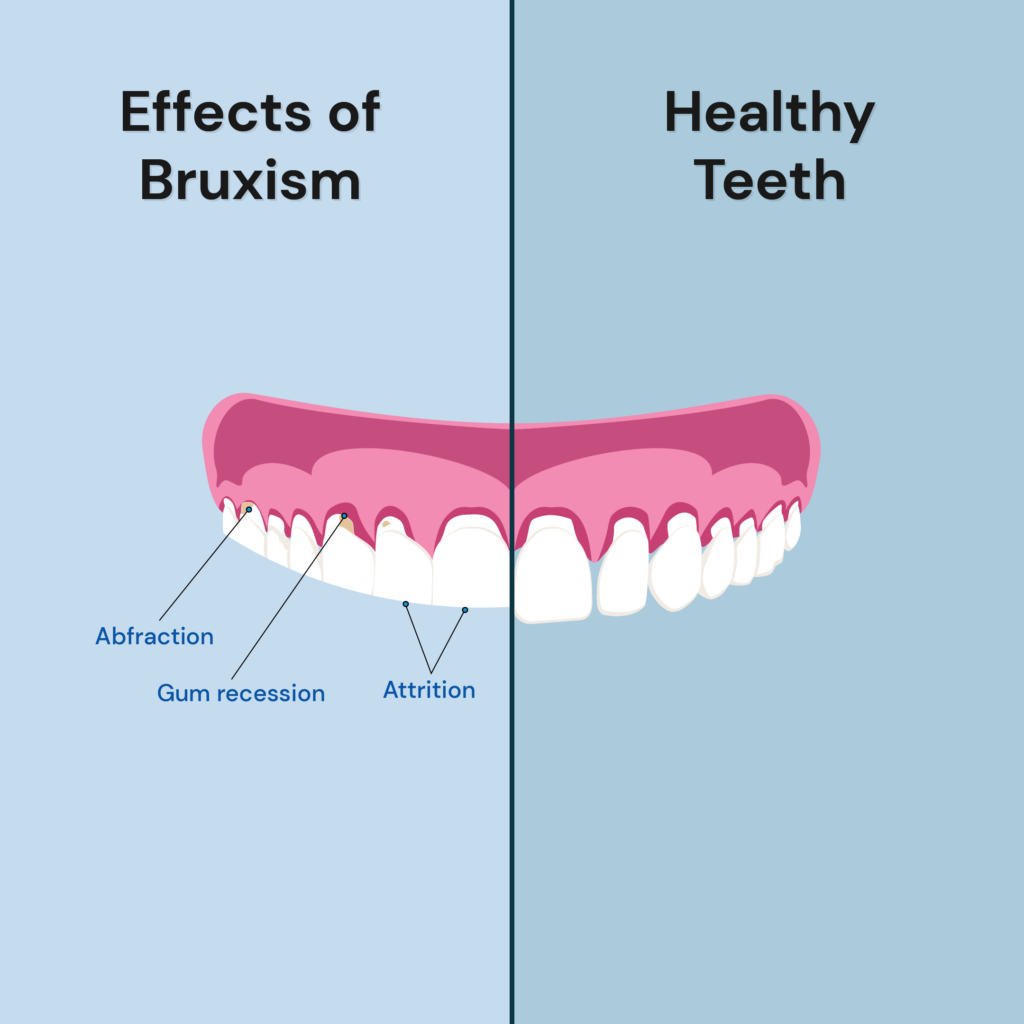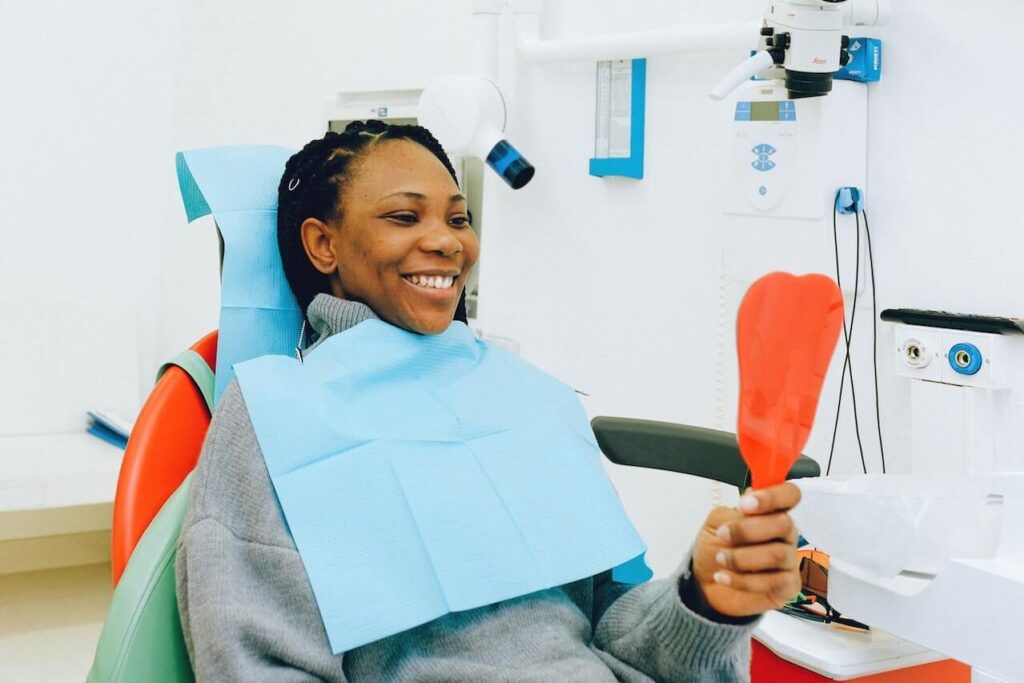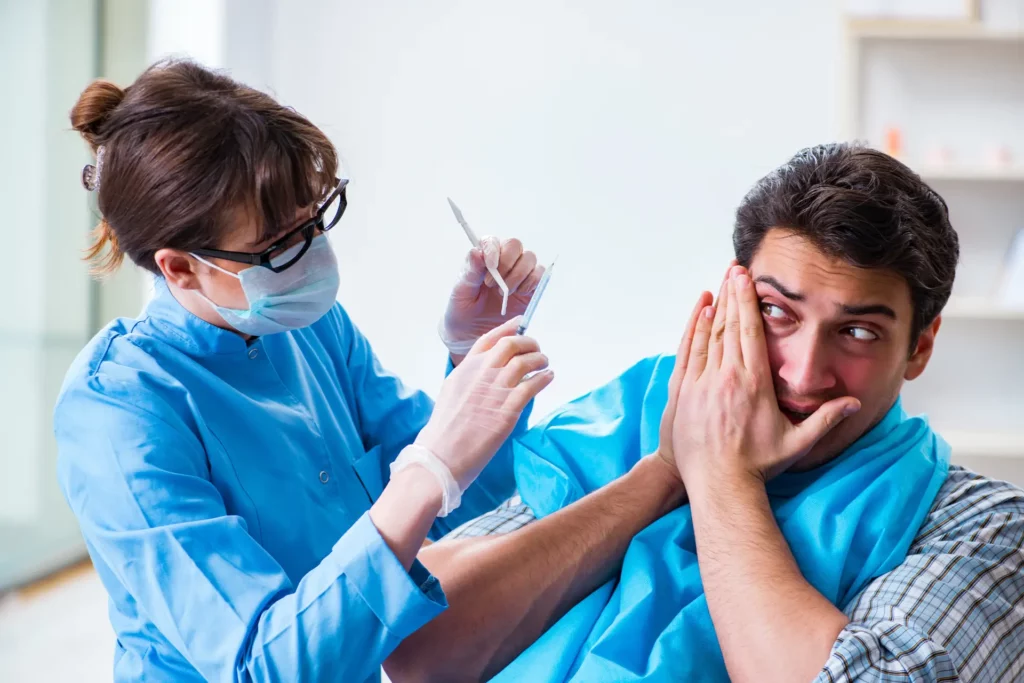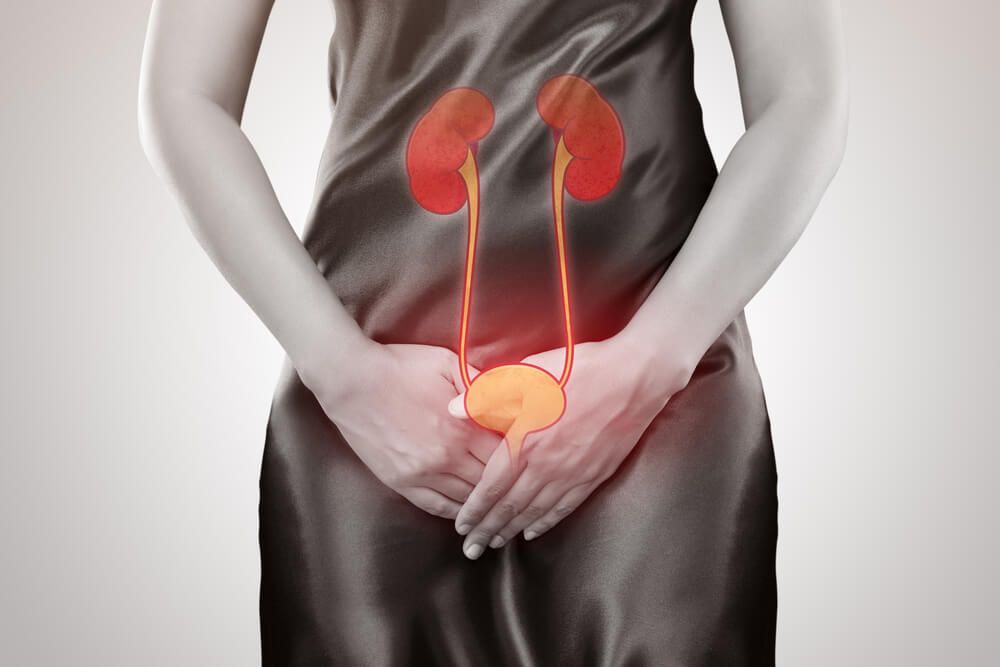Have you ever noticed severe tooth pain and wear despite an excellent oral hygiene routine? Ten percent of adults experience bruxism, involuntary teeth grinding in their sleep. It can happen due to sleep disorders or excessive snoring. Over time, it can damage your teeth and jaws. Your genes can put you at a higher or lower risk of developing bruxism. That’s why it’s vital to understand bruxism and your possible genetic risk for it.
Teeth Grinding Or Bruxism: Causes and Symptoms
Bruxism can happen due to:
- Stress or anxiety
- Sleep disorders
- A crooked set of teeth
- People who drink alcohol and smoke
Some common symptoms of bruxism are:
- Loose or fractured teeth.
- Increased teeth sensitivity
- A tight or tired jaw that won’t open completely.
- Face and jaw pain
- Problems in the temporomandibular joint near your ear
- Dull headache and earache
- Sleep disruption
Is Teeth Grinding Genetic?
Research has shown that teeth grinding can be genetic and run in families.
If your close relatives have bruxism, you are at risk of developing this disease.
How Is Bruxism Inherited?
21-50% of people with a close family member with bruxism will develop this condition.
NTRK2 and BDNF genes have a link to your risk for bruxism.
These two genes are involved in stress regulation pathways.
Bruxism, Genes, and Serotonin
People with altered serotonin receptors are at an increased risk of developing bruxism.
Serotonin is a neurotransmitter that influences mood and memory.
Changes in the serotonin receptors, such as HTR2A, can decrease serotonin levels in the body.
It might result in anxiety, which is the leading cause of teeth grinding.
Common antidepressants like SSRIs can put you at risk of developing bruxism.
What Is The Number One Cause Of Teeth Grinding?
Stress and anxiety are the leading cause of teeth grinding.
Clenching your teeth when you are stressed or anxious is typical behavior.
It continues in your sleep as sleep bruxism.
You can also develop this condition due to genetics.
Bruxism can run in families and increase the risk of developing this condition.
Sleep disorders such as apnea can also cause teeth grinding.
What Causes Teeth Grinding In Children?
Studies have shown that nearly 50% of children experience teeth grinding at night.
Teeth grinding can start as soon as teeth come in, so even toddlers and infants can suffer from bruxism.
It can occur due to:
- Misaligned teeth
- Pain from conditions like ear infections
- Stress due to, say, a change in routine
- Sleep conditions like sleepwalking, sleep-talking, and bed-wetting
Other Risk Factors For Teeth Grinding
- Age: Children are more likely to suffer from bruxism. It usually subsides in adulthood.
- Personality type: A hyperactive or aggressive personality can make you unconsciously grind your teeth.
- Other disorders: Suffering from conditions like dementia, Parkinson’s, and ADHD can put you at risk of developing bruxism.
Is Bruxism A Neurological Disorder?
Bruxism is both a neuromuscular and a dental disorder.
Physicians do not usually treat this disorder.
Dental surgeons and TMD specialists are better equipped to treat this condition.
Is Bruxism Related To Autism?
Teeth grinding is often a problem in children with autism.
In addition, they often cannot communicate clearly with their caregivers.
Thus, it becomes difficult to treat them, and their oral health gets compromised.
They might also have eating and sleep disorders, aggravating the problem.
Consequences Of Teeth Grinding
There can be several consequences if teeth grinding goes untreated:
- Damaged teeth: Your teeth could erode, and fillings could come loose.
- Joint issues: Your temporomandibular joint at the front of your ear could hurt, affecting your ability to chew.
- Bone loss: Your teeth loosen, leading to further oral health complications.

Bruxism: Diagnosis And Treatment
Teeth grinding cannot be cured entirely.
Several preventive measures can relieve symptoms and decrease teeth and jaw damage.
While some people might not need help at all, here’s what you can do if your bruxism turns serious:
- Stress management: Relaxation techniques like yoga or meditation before bed and behavioral therapy sessions with a professional can tackle anxiety issues.
- Medication: Botox limits muscle activity and can help manage the symptoms of bruxism.
- Dental guards: A dentist can prescribe dental guards to protect your teeth while you sleep.
What If You Don't Treat Bruxism?
Chronic bruxism can compromise your oral health.
If left untreated, you might develop tooth pain and problems.
Your enamel will erode, exposing the underlying dentin.
An exposed dentin could make your teeth painfully sensitive to cold or hot foods.
Bruxism can also cause chronic jaw pain, which can become more severe over time.
Summary: Is Teeth Grinding Genetic?
- Teeth grinding or bruxism is the clenching or grinding of teeth, usually at night.
- It can cause significant oral health issues and damage teeth.
- Bruxism runs in families and is a hereditary disease.
- Other external factors like stress and anxiety can also trigger this condition.
- Although it has no cure, you can live with bruxism through stress management, dental guards, and medication.
Others Are Also Reading

Are Cavities Genetic? The Root Cause

Bad Teeth Genes: Can Dental Issues Run In Families?

Are UTIs Genetic?




